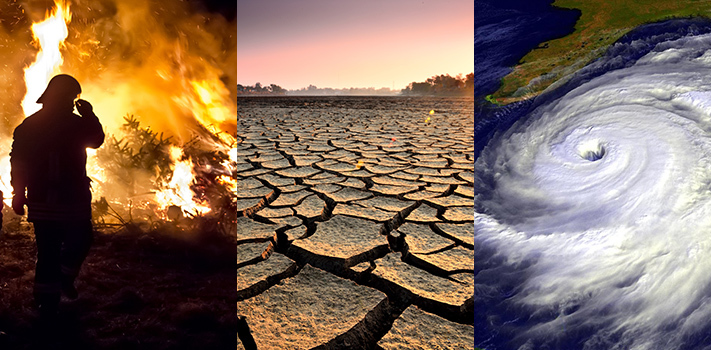This year’s E-Torah is actually E(co)-Torah, with a focus on Jewish ecological wisdom from each week’s portion.
[God
said to Noah]: Never again shall all flesh be cut off by the waters of a flood,
and never again shall there be a flood to destroy the earth.
(Genesis 9:11)
God gave Noah the rainbow sign: No more water but
the fire next time.
(African-American
spiritual and Midrash Genesis Rabbah 49:9)
We
tend to tell the Noah story as a children’s fable, complete with stuffed
animals and cute songs but it is actually a very adult myth that speaks to the
most pressing issue of our own time. As Rabbi
Arthur Waskow notes, this is a tale of a planetary flood brought on by corrupt
human behavior, in which only the spiritual depth, creative ingenuity and very
hard work of a few people save enough species for the web of life to begin anew.
In
the end, God promises never to flood the earth again. We arrive at that passage and breathe a sigh
of relief, thinking, “Well, that was horrible, but thank God, we’re safe.” But are we?
Midrash
teaches that as Abraham witnessed the fiery destruction of Sodom and Gomorrah,
he confronted God: “You promised never again to destroy the world in a
deluge. Surely You did not mean that you
might still send a flood of fire?” And
God was silent. Or, as the old spiritual
puts it: God gave Noah the rainbow sign:
No more water but the fire next time.
Human-caused catastrophic climate change is already
bringing us a deluge of both water and fire.
Warming seas intensify tropical storms into ferocious hurricanes, as
more than 90 percent of the heat trapped by greenhouse gas emissions is stored
in the ocean. Hurricanes feed on that
heat. At the same time, the state of
California is consumed with wildfires.
Make no mistake, our luck with this cool summer notwithstanding, it will
not be long before the conflagrations hit home here in Idaho, too.
God will not save us from our irresponsibility
toward our environment. Much harm has
already been done. Yet our actions, like
those of Noah and his family, can still make a difference. We cannot reverse all of the hurt we have
wrought—people are dying from climate-caused disasters at this very moment, and
countless species are already extinct—but we can still mitigate the damage by
lowering our own carbon footprints and working for political change at the
city, state, national and global levels. Let us listen and learn from
the Noah story. These times cry out for
both its warning and its hope. With
courage and persistence, we might yet avert the fire next time. Our young people are leading the charge. The least we can do is get out of the
way. Or better yet, let us join them.

No comments:
Post a Comment